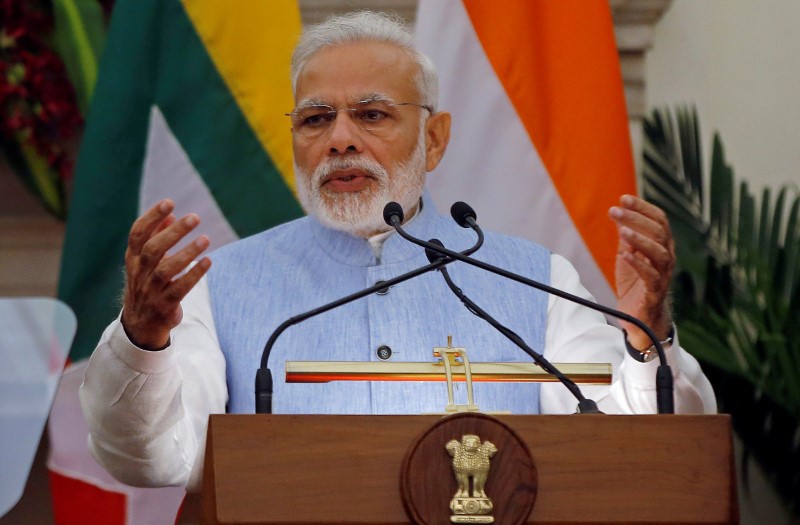By John Whitesides and Julia Harte
WASHINGTON (Reuters) - President Donald Trump's plans to investigate the possibility of voter fraud in the 2016 election could pave the way for tough voting rules including stringent ID requirements that Democrats and rights groups say would amount to a new assault on voting rights.
Trump's frequent and repeatedly refuted assertions of election fraud were a tacit endorsement of recent Republican-led state restrictions on access to the ballot, critics said, and could be an early sign of the administration's support for changes in laws that could create new hurdles to voting.
"If you look throughout history, these allegations of fraud have always been deployed as a justification for restricting access to the ballot," said Dale Ho, director of the Voting Rights Project at the American Civil Liberties Union.
Repeated studies have shown that voter fraud is exceptionally rare in U.S. elections and almost always the result of isolated mistakes, not a systematic attempt to cheat the system.
Civil rights groups said Trump's unfounded accusations that millions voted unlawfully in November could signal a broader Justice Department shift away from its approach under former Democratic President Barack Obama of challenging statewide voting laws that discriminate against minority voters.
In a possible early sign of that shift, government lawyers asked just hours after Trump's inauguration on Friday for a delay in a hearing on whether a voter identification law in Texas was intentionally discriminatory. The lawyers said they were seeking the delay because of the change of leadership.
A new push in the Republican-controlled Congress for federal voting restrictions could include a national voter identification or proof-of-citizenship requirement, or a campaign to update and purge voter rolls or limit registration efforts, voting advocates said.
While U.S. citizenship is required to vote in American elections, most states allow those wishing to register to simply sign a statement affirming they are citizens. Thirty-two states require some form of identification at the polls, the National Conference of State Legislatures said.
Trump won the state-by-state Electoral College votes needed to secure the presidency but lost the popular vote to Democrat Hillary Clinton by nearly 3 million ballots in the Nov. 8 election. He has blamed that margin on millions of illegal voters casting ballots for Clinton.
Announcing his "major investigation" into voter fraud on Twitter on Wednesday, he said it would cover "those registered to vote in two states, those who are illegal" and "those registered to vote who are dead (and many for a long time.)"
"Depending on results, we will strengthen up voting procedures," Trump said.
While outdated voter registrations caused by people moving or dying are not uncommon, many state election officials regularly update their voter lists to keep them up to date and outdated registrations do not constitute fraud, rights advocates said.
Trump's statements could "serve as a dog whistle for voter suppression tactics to be implemented around the country," said Kristen Clarke, president of the Lawyers' Committee for Civil Rights Under Law, a Washington-based advocacy group.
STATE RESTRICTIONS
New voting restrictions were instituted in 17 Republican-led states after the 2012 election, including a photo identification requirement in Wisconsin, restrictions on mail-in ballot collection in Arizona and cutbacks to early voting in Ohio.
Civil rights groups said the laws, which have been struck down by courts in some states, were aimed at poor and minority voters more likely to support Democrats.
The National Association of Secretaries of State, which represents election officials in all 50 states including many Republicans, disputed Trump's views on voter fraud.
"We are not aware of any evidence that supports the voter fraud claims made by President Trump but we are open to learning more about the administration’s concerns," the group said.
Eleven states that passed new voting restrictions between the 2012 and 2016 general elections responded to questions from Reuters about the prevalence of voter fraud before and after their laws. None provided specific examples of voter fraud that necessitated the new laws, or of fraud attempts that were caught by the newly passed laws.
But Tennessee, Alabama, Ohio and Texas said hundreds of reports of voter fraud had been received and investigated by state authorities in recent years. State election officials in Tennessee and Texas both said that "dozens" of voter fraud reports had resulted in prosecutions.
John Merrill, Alabama's Republican secretary of state, said investigating voter fraud was better left to local communities and states.
"We don't need the federal government to help until we realize there's a problem that we can’t solve on our own or aren't making an effort to solve on our own," he said.
PROBING 'HOW DEEP IT GOES'
White House spokesman Sean Spicer told reporters the voter fraud investigation would "look at the scope of the problem" before solutions were proposed. "Maybe its voter ID in states," he said. "But I think we have to understand where the problem exists; how deep it goes; and then suggest some remedies to it."
Any federal effort to prosecute voter fraud would be headed by Trump's attorney general nominee, Republican Senator Jeff Sessions, who has been criticized for his record on voting rights and race relations. A voter fraud case he prosecuted as a U.S. attorney in his home state of Alabama helped sink his confirmation as a federal judge in 1986.
Trump has not always seen voter fraud in last year's election results. His campaign attorneys opposed recount efforts in several states sought by Green Party candidate Jill Stein and argued in a legal filing that "all available evidence suggests that the 2016 general election was not tainted by fraud or mistake."
Spicer said the campaign was just talking about swing states where the election was fiercely contested, not the big states of California and New York where Clinton rolled up her popular vote margin.

"We didn't look at those two states in particular," Spicer told reporters.